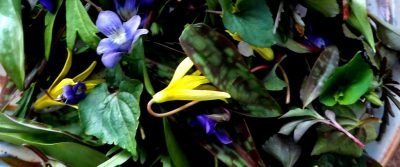
FUNDAMENTALS CURRICULUM
FUNDAMENTALS OF COMMUNITY HERBALISM COURSE CURRICULUM
Botany, ecology, plant taxonomy, evolution of plants, botanical vocabulary, plant identification.
Herbal actions and energetics, flavors of herbs and their meaning.
Wildcrafting procedures and ethics. Ecological responsibility.
Tools for fostering connection to place in any environment. Bioregional herbalism.
Embodied practices for learning from plants.
Making herbal medicines, including harvesting, processing and drying herbs, preparation of medicinal teas, tincturing by various methods, oxymels, elixirs, infused oils & salves, lotions, liniments, medicine balls, smoke medicine, and medicinal mushroom double-extractions.
Food as Medicine. Creative ways to consume herbs.
History and traditions of Western herbalism.
Holistic and Vitalist approaches to the human body in health & disease.
Nutrition fundamentals. Working with food allergies and intolerances.
Elemental patterns of imbalance in the human body (tissue states). Tools for assessing and addressing these imbalances.
Foundational anatomy and physiology.
In-depth teaching on over 60 individual herbs: botany & identification, tastes & energetics, actions, uses, formulation, contraindications, and cultivation tips. (Materia Medica)
Basic formulation.
Herbal first aid.
Practical tools for self- and community-care, including herbal support for healthy digestion, stress management, restful sleep, and more. Care for colds, flus, and other common infections.
Readings, discussions, and presentations on racial equity, gender inclusivity, decolonization, cultural appropriation, and other topics relevant to herbalism and health care.
Focused classes on: Herbalism on a Budget. Herbs for mental health. STI’s and genital care.
